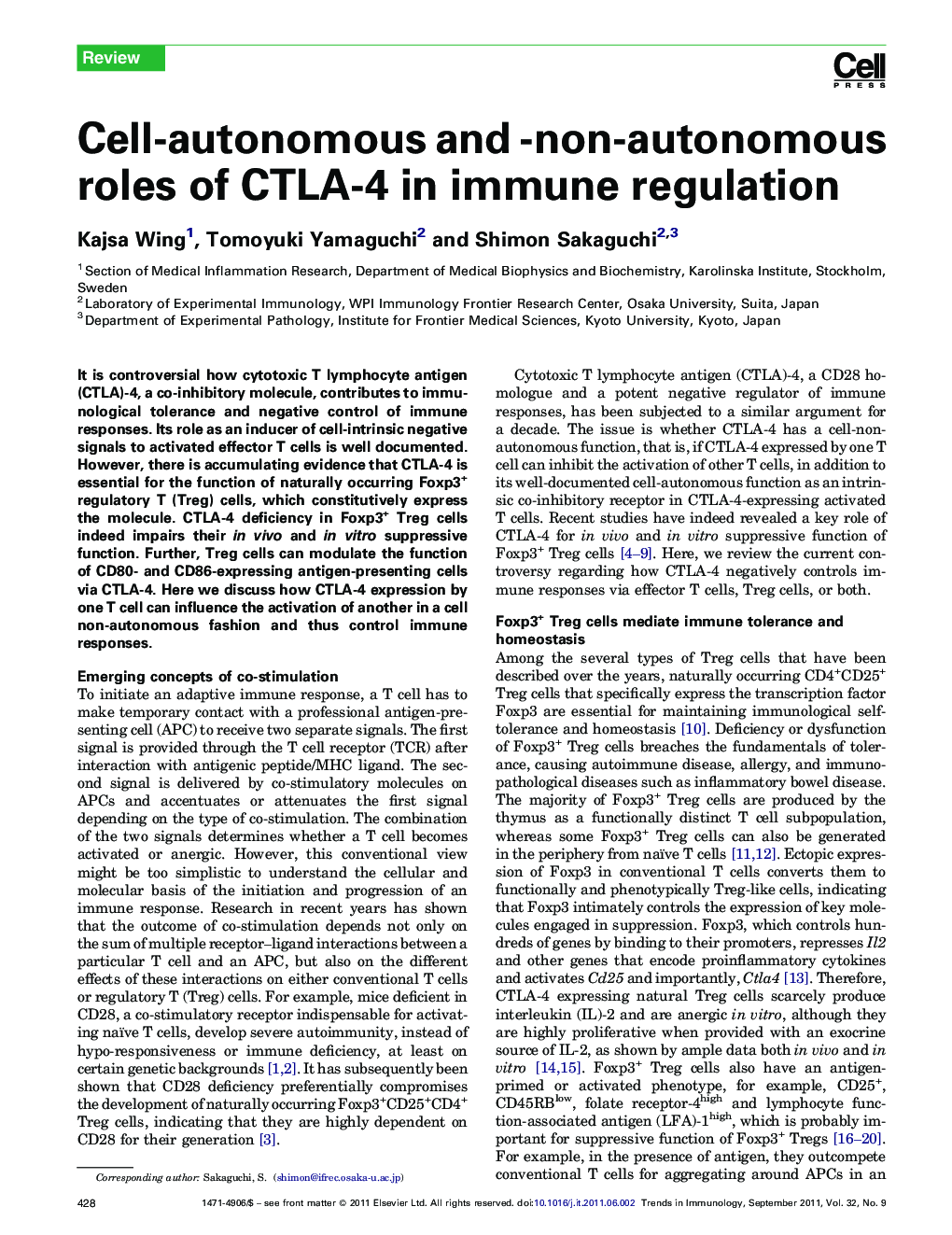| Article ID | Journal | Published Year | Pages | File Type |
|---|---|---|---|---|
| 4360033 | Trends in Immunology | 2011 | 6 Pages |
It is controversial how cytotoxic T lymphocyte antigen (CTLA)-4, a co-inhibitory molecule, contributes to immunological tolerance and negative control of immune responses. Its role as an inducer of cell-intrinsic negative signals to activated effector T cells is well documented. However, there is accumulating evidence that CTLA-4 is essential for the function of naturally occurring Foxp3+ regulatory T (Treg) cells, which constitutively express the molecule. CTLA-4 deficiency in Foxp3+ Treg cells indeed impairs their in vivo and in vitro suppressive function. Further, Treg cells can modulate the function of CD80- and CD86-expressing antigen-presenting cells via CTLA-4. Here we discuss how CTLA-4 expression by one T cell can influence the activation of another in a cell non-autonomous fashion and thus control immune responses.
